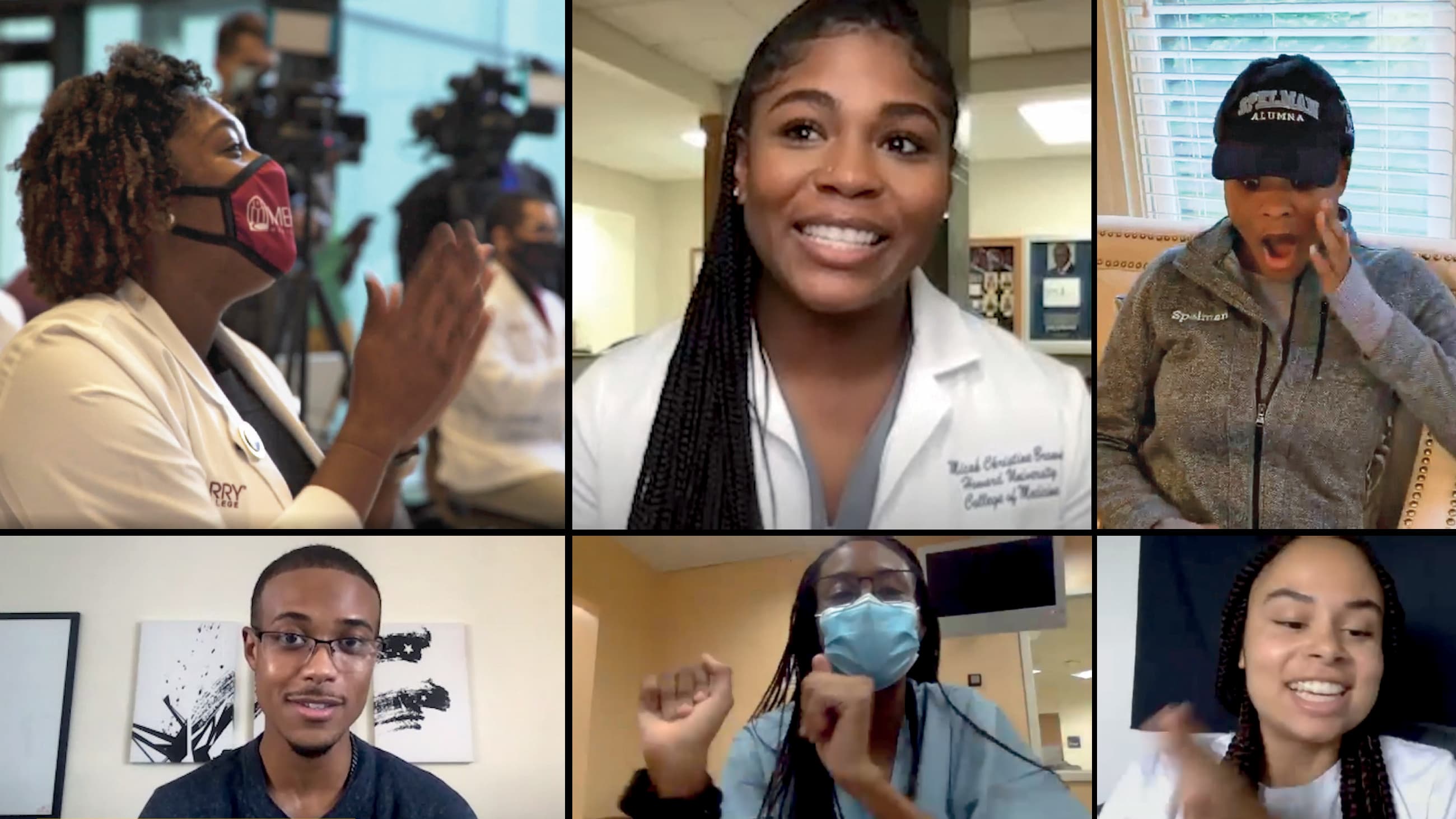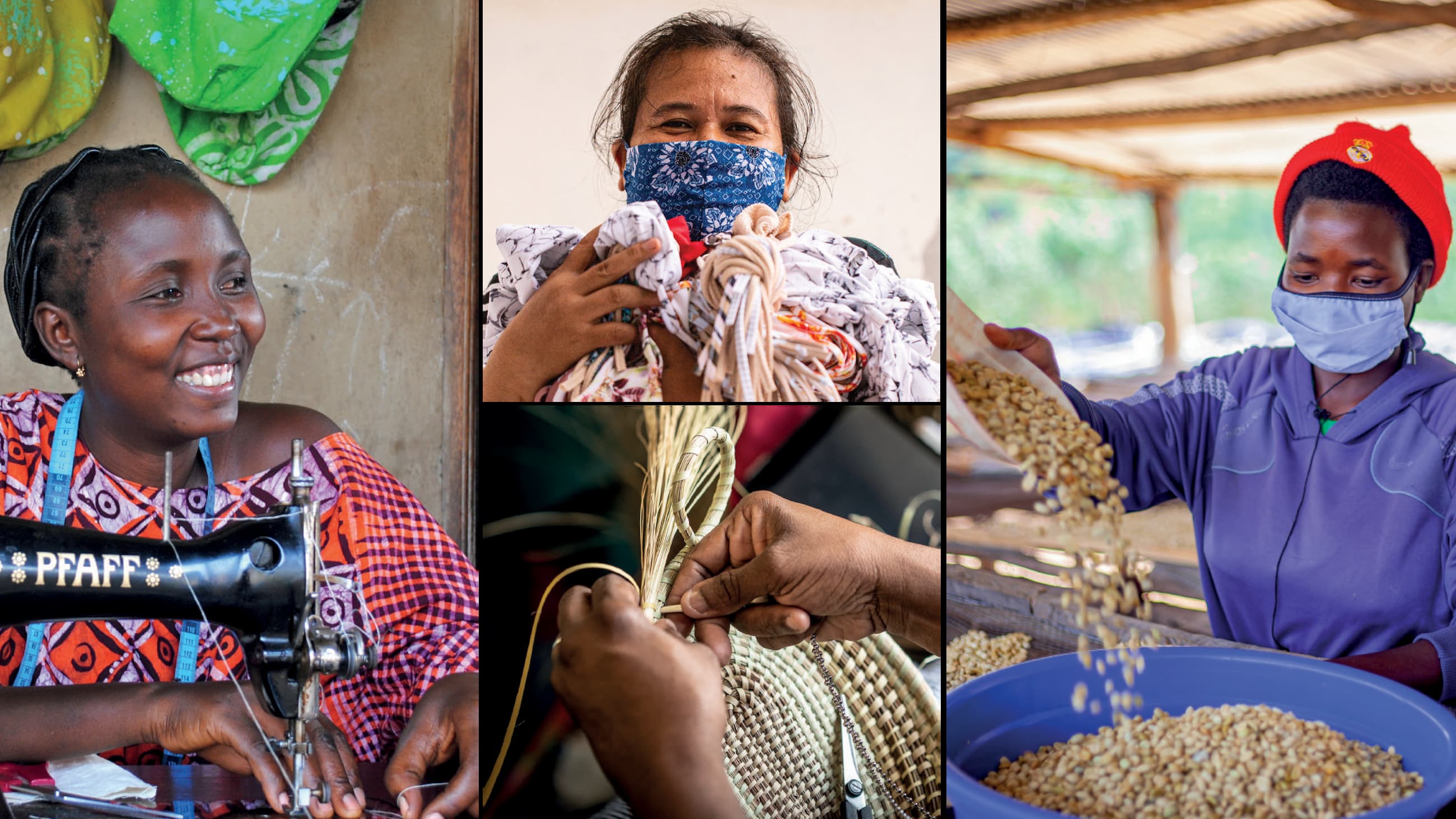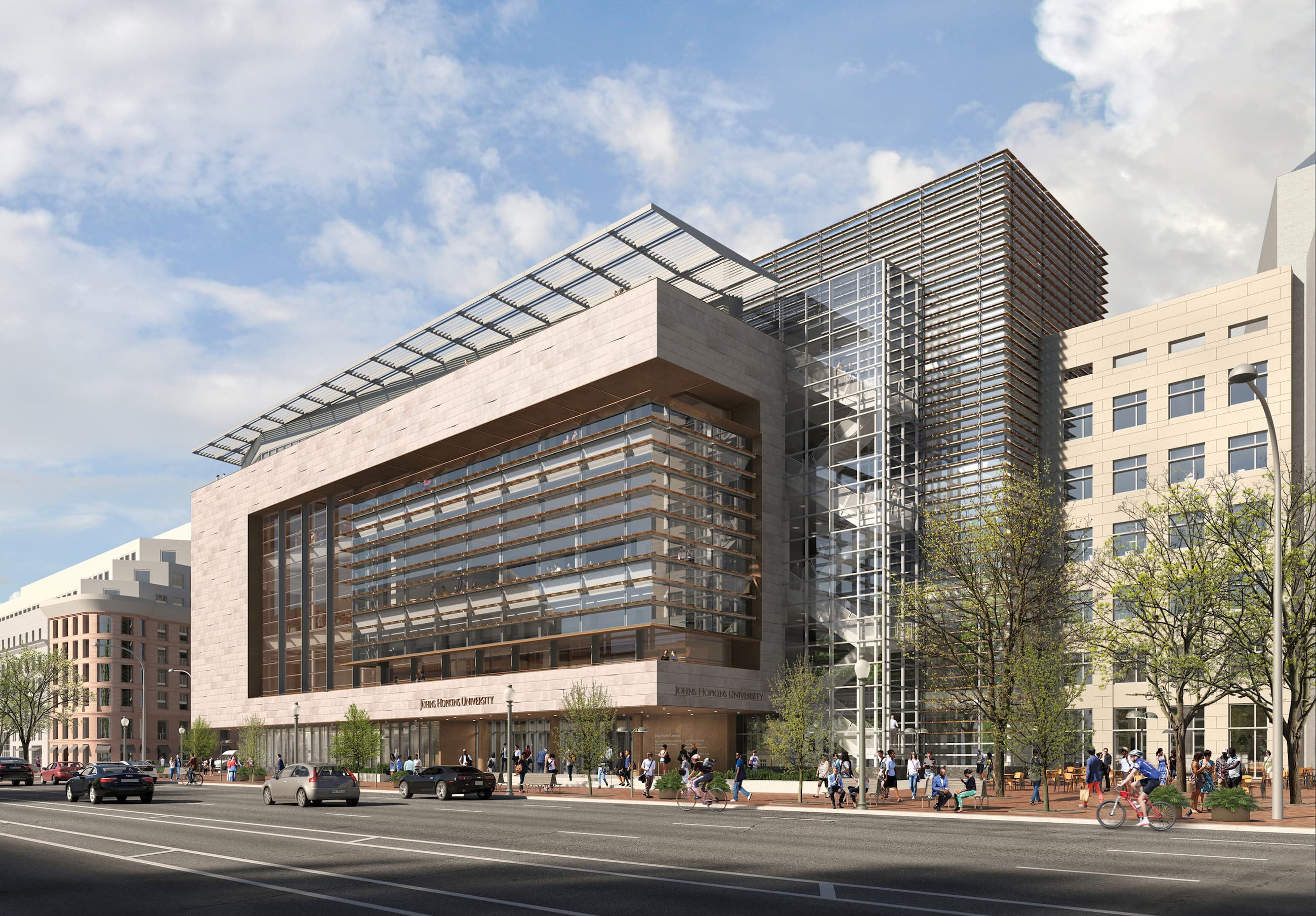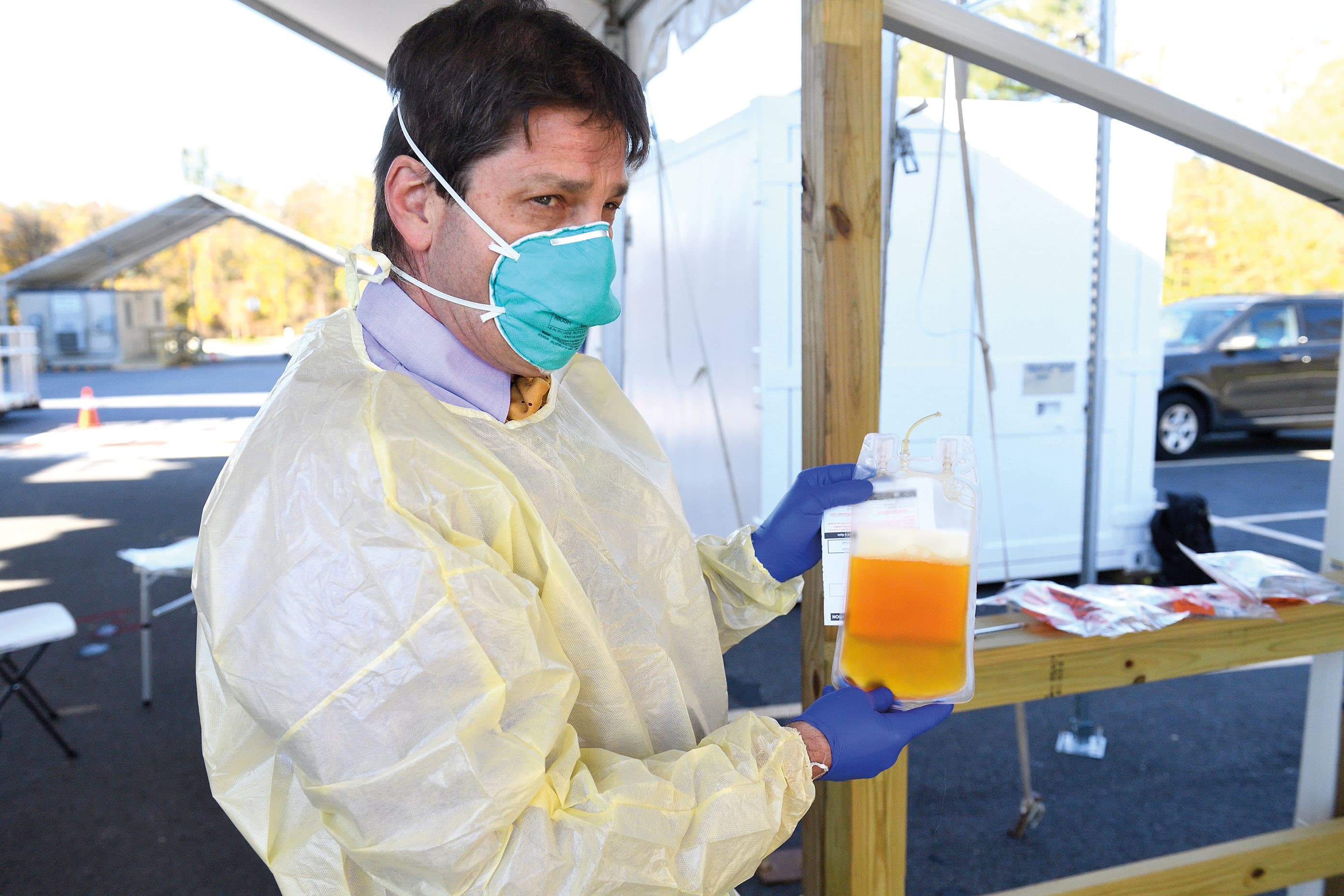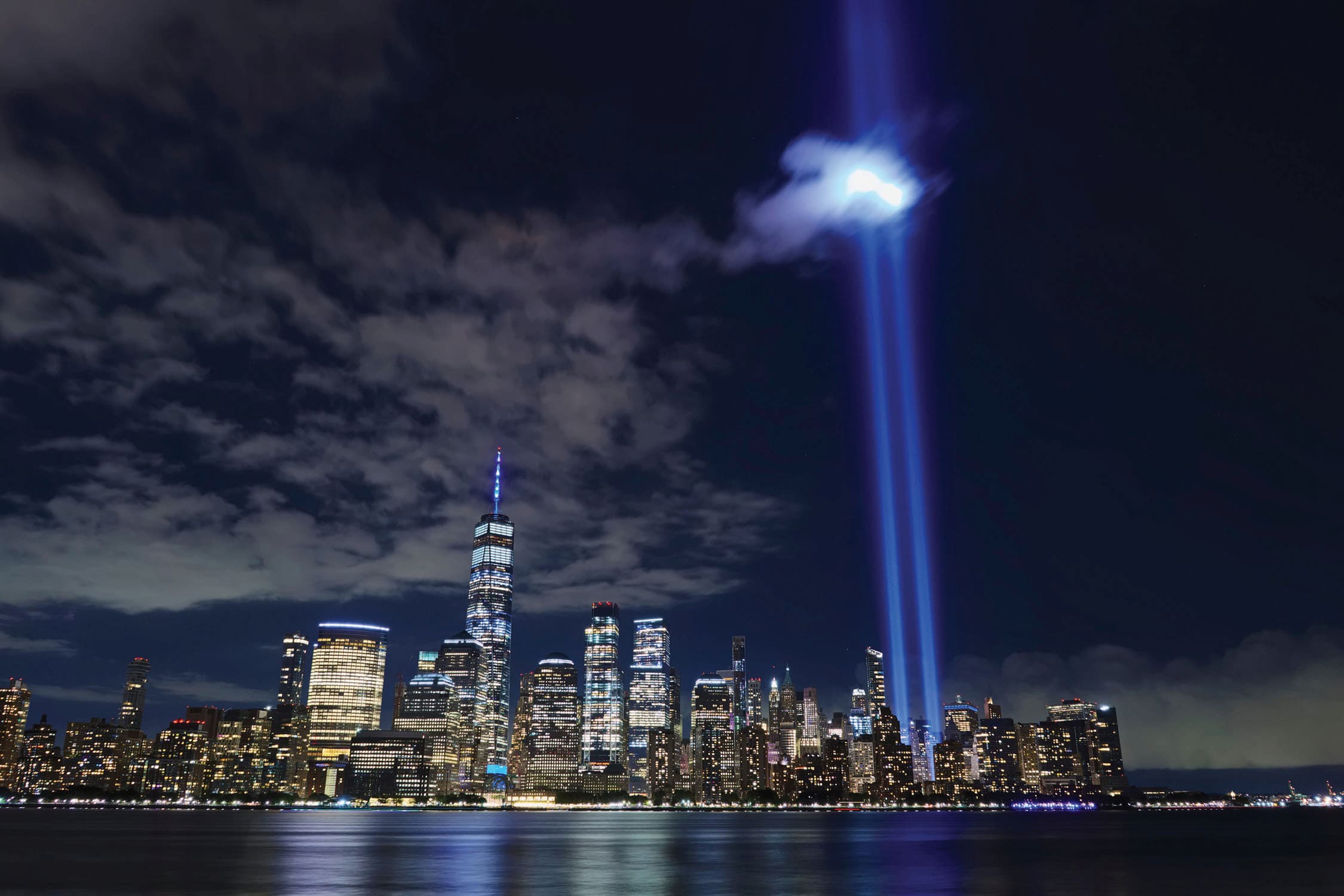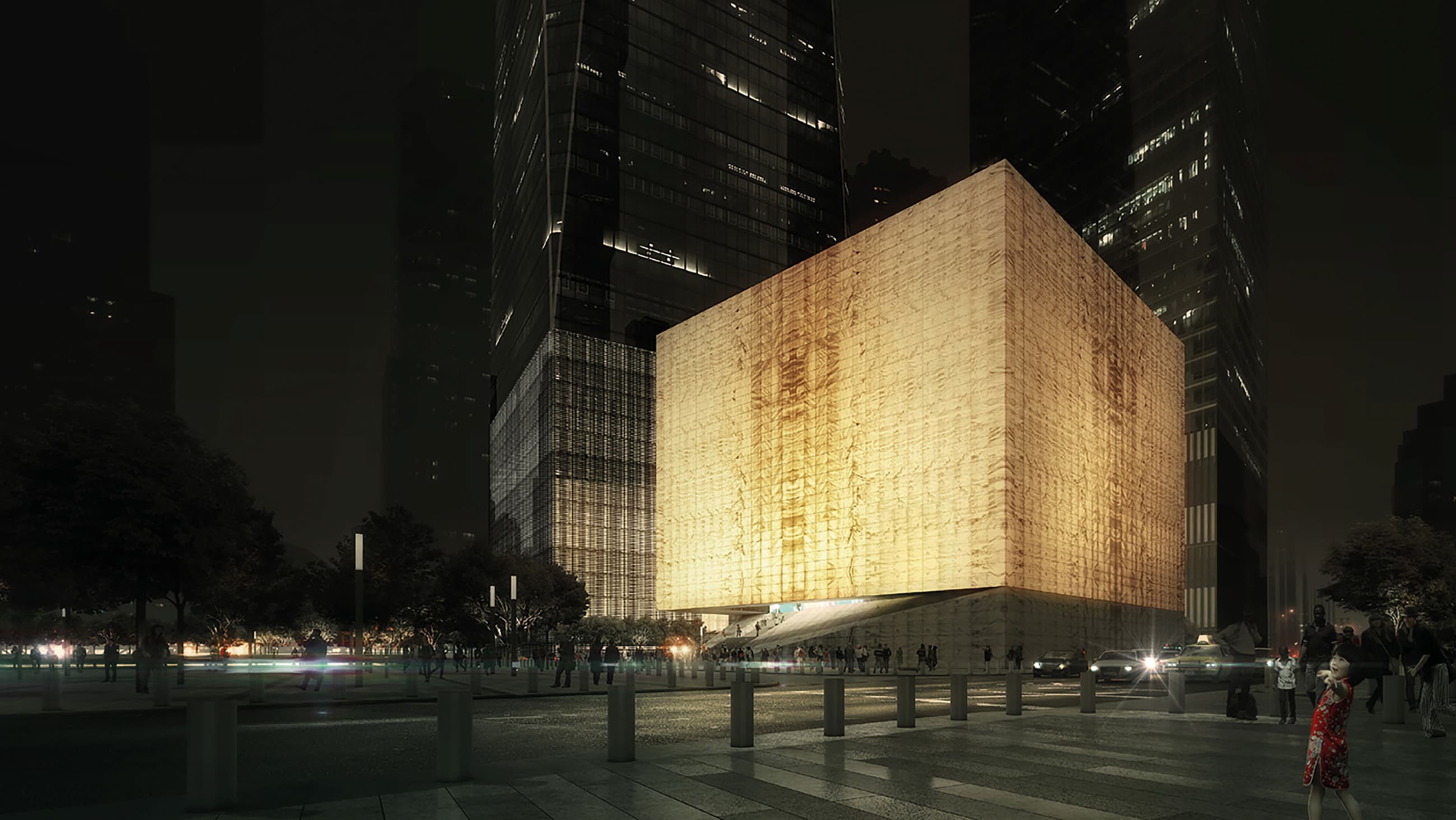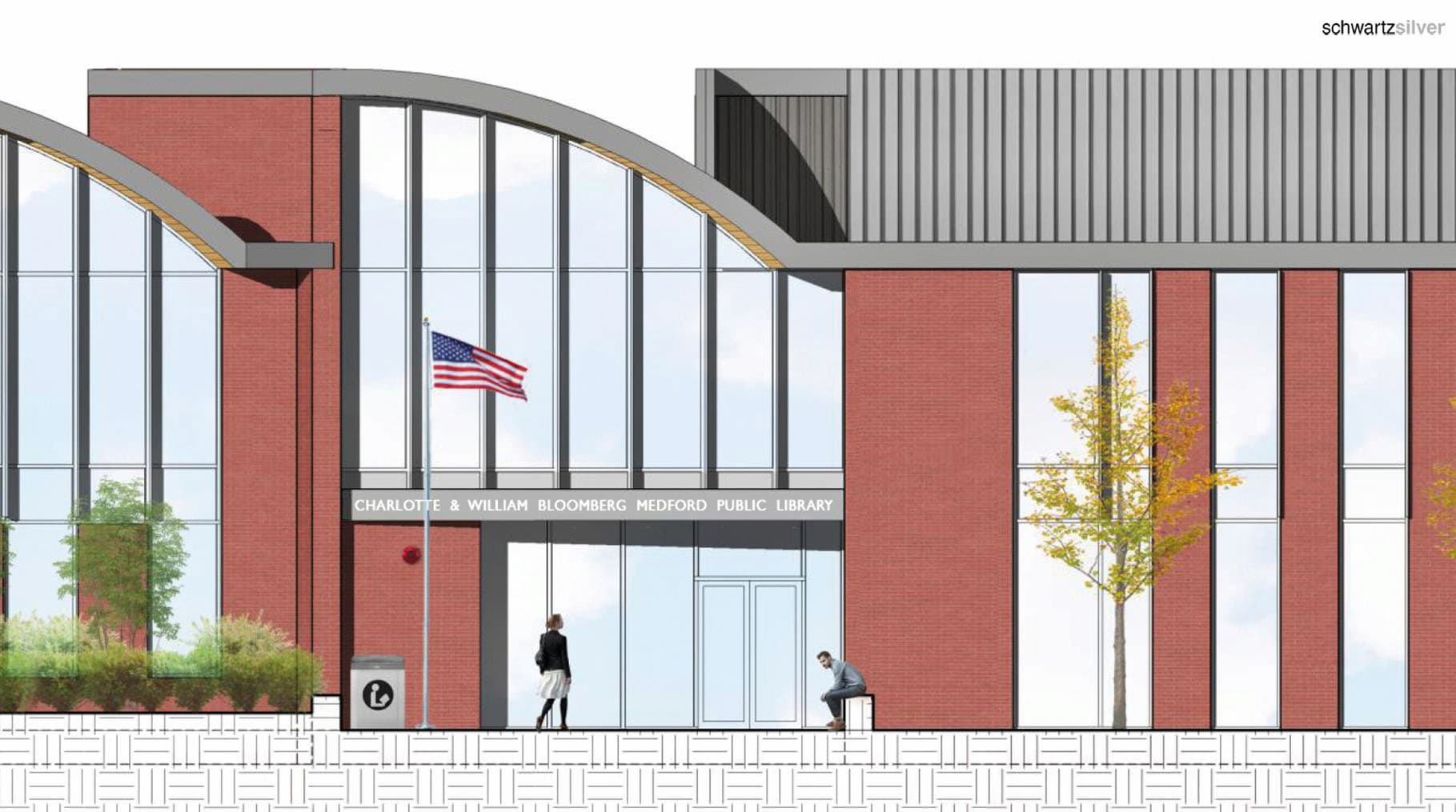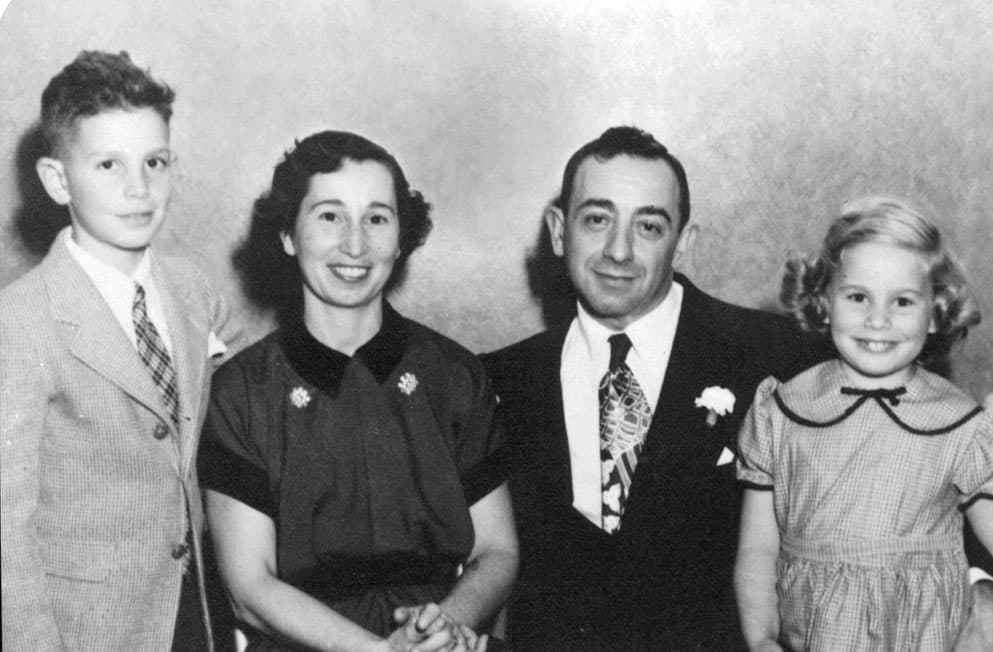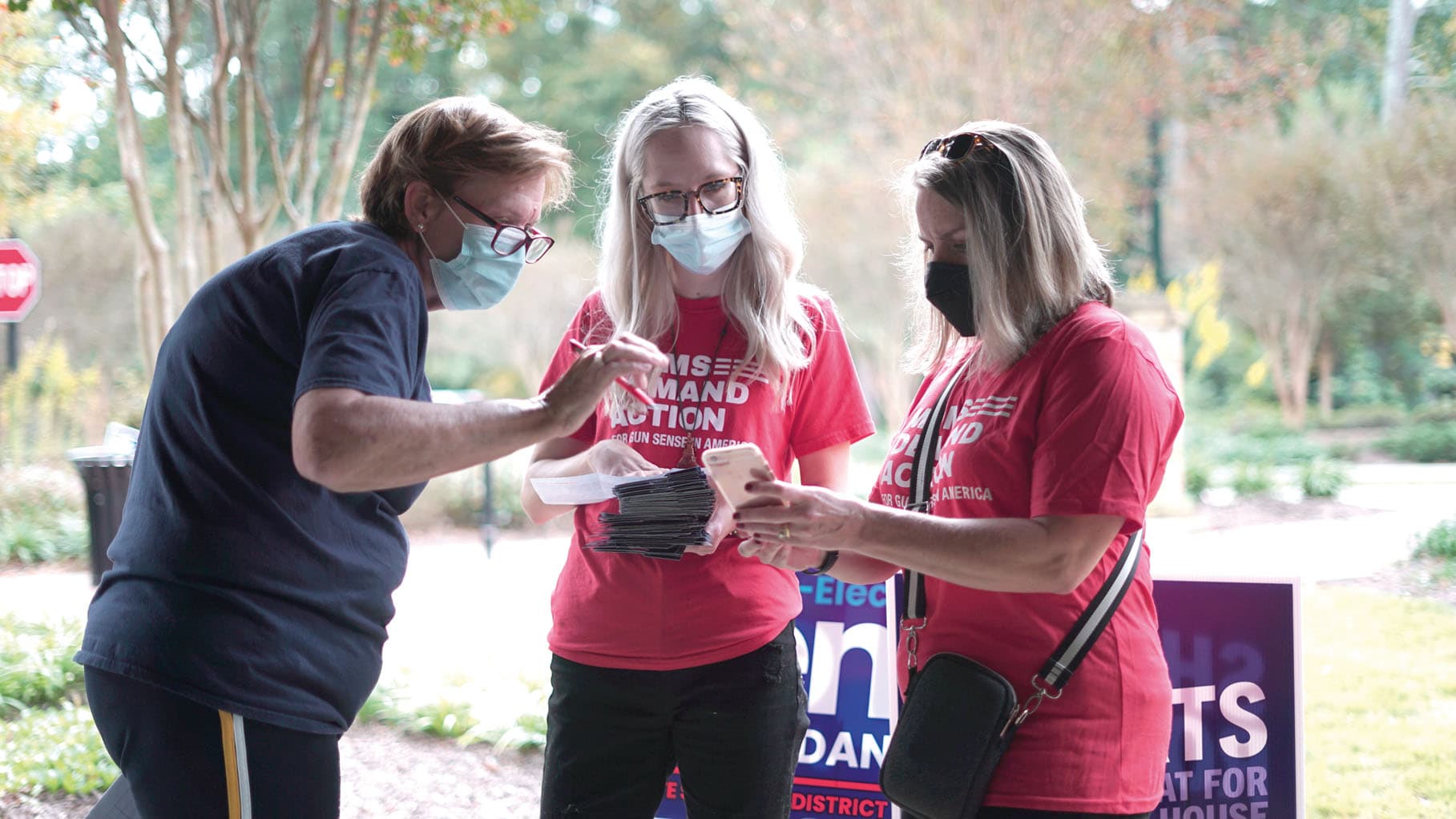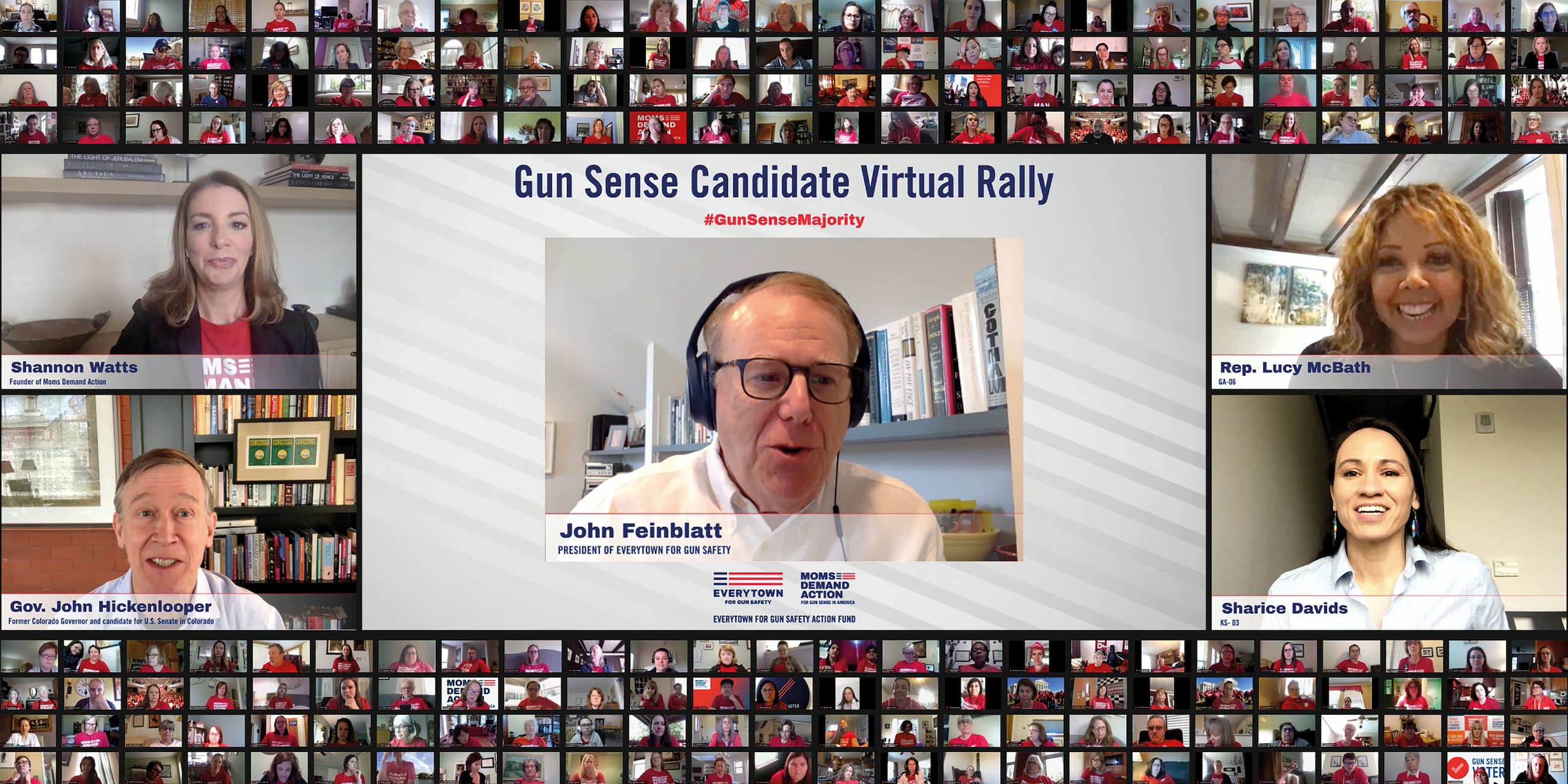Improving Lives Worldwide
Founder’s Projects
“Our world is facing big, complex challenges. But I’m a big believer that if we follow the data and work in partnership, we can make enormous progress.”
Mike Bloomberg
In 2018, Mike Bloomberg traveled to Tulsa, Oklahoma, to announce that the city had won Bloomberg Philanthropies’ Public Art Challenge. The winning proposal honored the neighborhood of Greenwood — once known as Black Wall Street, and the site of one of America’s worst tragedies: the 1921 Tulsa Race Massacre.
During his presidential campaign, Mike returned to Tulsa in January 2020 to announce an ambitious plan to accelerate the pace of wealth accumulation for Black individuals and their families. Named the Greenwood Initiative in remembrance of the hundreds killed in the massacre, Mike’s proposals aimed to address the reality that the average Black family in America today owns about one-tenth of the wealth of the average white family — a disparity that is only being exacerbated by the economic fallout of the COVID-19 pandemic. Bloomberg Philanthropies has taken up the plan’s objectives, which aim to help increase intergenerational wealth among Black families, working with partners that have a proven track record of increasing economic and social mobility.
In September 2020, amid a pandemic in which Black patients in the United States are dying from COVID-19 at a rate nearly three times that of white patients, Bloomberg Philanthropies announced the launch of the Greenwood Initiative with a four-year, $100 million commitment to America’s four historically Black medical schools. This funding enables the four schools — Charles R. Drew University of Medicine and Science in Los Angeles, California; Meharry Medical College in Nashville, Tennessee; Morehouse School of Medicine in Atlanta, Georgia; and Howard University College of Medicine in Washington, D.C. — to provide debt relief of up to $100,000 to approximately 800 students currently enrolled and receiving financial aid.
“Many times you’ll find that people will choose a profession because of the debt they are carrying. So the ability to reduce that debt gives you more choices and the opportunity to give back to a community.”
Hugh E. Mighty, M.D
Dean
Howard University
College of Medicine
This investment will help save lives and reduce the inequities in the U.S. health care system that limit economic opportunity in the Black community. These inequities in both health and economic outcomes have been worsened by the COVID-19 pandemic. Due to several factors, Black patients typically have better health outcomes when they are treated by Black doctors. By reducing the debt burden of Black medical students, the Greenwood Initiative investment gives students more flexibility to choose their specialty and where they will practice, strengthening the pipeline of Black doctors able to serve the needs of Black communities.
Watch how Bloomberg Philanthropies is helping America’s four historically Black medical schools increase the number of Black doctors by easing students’ debt burden
Committed to the core belief that women are central to economic growth, the Women’s Economic Development program partners with governments, nonprofits, and the private sector to engage women with skills-based training to increase their economic opportunities. The initiative’s work became even more essential as COVID-19 and its global economic aftershocks affected the lives and livelihoods of people around the world. Building on Bloomberg Philanthropies’ approach, including flexibility, the program and its partners were ready to respond. An important aspect of this work and the initiative’s work in general is connecting women and their products to markets through strategic partnerships with global companies, creating more opportunities for female entrepreneurs.
Since the inception of Bloomberg Philanthropies’ partnership with Women for Women International in Africa 14 years ago, the program has grown and, with multiple partners, has enrolled over 475,500 women in training programs around the world, directly benefiting more than two million people. These investments have resulted in a training portfolio of 12 vocational tracks, such as agriculture, tourism, brickmaking, and textiles, that are based on market demand and government priorities. The Women’s Opportunity Center in Rwanda, with 12 active classrooms built by graduates of the program in 2013, serves as a model of centralized employment training.
At the height of the pandemic, graduates of the program began producing more than 1,000 masks per day, providing personal protective equipment for the region. To the west, in the Congo, women enrolled in the program who were trained to share public health information during the Ebola epidemic were mobilized to apply these skills to the COVID-19 crisis, reaching over 300,000 community members.
Through partnerships with national governments and Sustainable Harvest, which provides agricultural training to women farmers in Rwanda and the Congo, the program continues to bring specialty coffee to the international market. Today, coffee produced by these female farmers is served at hotels across Rwanda, including Serena Hotels, Park Inn by Radisson Kigali, and the Kigali Marriott. It is also available on RwandAir, served in Bloomberg L.P. offices around the world, and sold online. In addition, the coffee is brewed at the Question Coffee Café and Training Center in Kigali, Rwanda, which is run by women in the program. The café received a 2020 Travelers’ Choice Award from Tripadvisor, placing it in the top 10 percent of listings, and remained open with COVID-19 restrictions in place. Coffee production continued through the pandemic as farmers became essential workers, growing both coffee and much-needed produce. At rural farms, coffee washing stations have been repurposed to also serve as sanitation stations for the community to slow the spread of COVID-19.
As part of the initiative’s global work, it invests in nonprofit partner Nest’s business development training program for artisans who make goods by hand in their homes, an industry that has become even more important during COVID-19 lockdowns. With Bloomberg Philanthropies’ investment, Nest created the first-ever industry-wide certification for artisan goods that are made outside of regulated factories. This certification aims to increase the consumer goods industry’s ability to responsibly source from artisan partners and increase consumer demand for ethically produced handcrafts. Nest’s work has improved access to markets for more than 1,110 businesses representing nearly 250,000 workers in over 110 countries.
Johns Hopkins University
In 1964, the year he graduated, Mike Bloomberg donated $5 to Johns Hopkins University. Ever since, he has demonstrated a special commitment to his alma mater and its home city of Baltimore, Maryland, serving as chair of the Board of Trustees and supporting efforts across the university, including major capital projects, endowed professorships, and undergraduate need-based scholarships.
Mike’s commitment has helped make the Johns Hopkins Bloomberg School of Public Health — the #1 school of public health in the United States according to U.S. News & World Report — not just a pioneering force in public health research and scholarship, but also an indispensable leader in the global response to COVID-19. Johns Hopkins is known as the go-to resource for the latest data and expertise. Bloomberg Philanthropies’ support been key in the development of the widely cited Johns Hopkins Coronavirus Resource Center.
Bloomberg Philanthropies has supported the Charlotte R. Bloomberg Children’s Center, the Johns Hopkins Malaria Research Institute, and the Bloomberg~Kimmel Institute for Cancer Immunotherapy. The Bloomberg Distinguished Professors program was also created to fund 50 endowed professorships to work across disciplines at Johns Hopkins. Bloomberg Distinguished Professors have appointments in at least two different schools across the university to increase cross-discipline collaboration and lead to new breakthroughs.
The Bloomberg commitment to Johns Hopkins has eased the burden of debt for graduates and helped make the university community more socioeconomically diverse. Over the past two decades, with Mike’s support, the share of students in the freshman class from underrepresented minorities has increased from fewer than seven percent to nearly 33 percent in the Class of 2024 — the most diverse class ever. The percentage of first generation college students in the freshman class is 16 percent.
Bloomberg Philanthropies’ historic $1.8 billion gift in 2018 made Johns Hopkins need-blind and loan-free — and deepened Mike’s longstanding commitment to scholarship funding through the Bloomberg Scholars Program and beyond.
Almost 21% of the Johns Hopkins Class of 2024 is Pell-eligible, up from15.4% in 2018
Baltimore
Bloomberg Philanthropies continues to expand its philanthropic engagement in Baltimore with a focus on education, small businesses, job creation, and workforce development programs, especially for the city’s youth.
In 2017, Bloomberg Philanthropies partnered with Goldman Sachs to expand the successful 10,000 Small Businesses program to Baltimore to help local entrepreneurs grow their companies. Three hundred and seventeen Baltimore program alumni have a combined annual revenue of more than $340 million and 7,000 employees.
Baltimore is also one of four cities that hosts a Bloomberg Philanthropies program that connects high school students with summer internships at arts organizations. Bloomberg Philanthropies worked closely with the organizations to ensure that this year’s participants were still able to have meaningful internships virtually. Baltimore-based arts organizations also participated in Bloomberg Philanthropies’ management training for small and mid-sized arts organizations through the Arts Innovation and Management program.
In addition, Bloomberg Philanthropies has worked directly with Baltimore city leaders to use data to improve decision-making and government services for residents through the What Works Cities program; to improve public safety with creative solutions from a dedicated innovation team (i-team); and to hone leadership and management skills through the Bloomberg Harvard City Leadership Initiative.
Supporting Baltimore’s Youth
Joni Holifield, a native of West Baltimore, founded HeartSmiles in 2015, after the death of Freddie Gray in police custody. Moved by the outpouring of grief from the city’s young people, Joni created a platform for Baltimore youth to cultivate their talents — and to break multi-generational cycles of poverty — through enrichment and leadership development opportunities. In partnership with the Johns Hopkins Bloomberg School of Public Health, Joni oversees the school’s Youth Advisory Board with the Center of Adolescent Health. Since the pandemic, HeartSmiles has shifted more of its programming online and expanded to youth beyond Baltimore.
Hear how HeartSmiles shifted its programming online – and started connecting with youth beyond Baltimore – during COVID-19
Johns Hopkins completed its purchase of the former Newseum building at 555 Pennsylvania Avenue in Washington, D.C., thanks, in part, to support from Bloomberg Philanthropies.
The iconic building will provide a new, high-visibility home for the university’s D.C.-based academic programs, anchored by the School of Advanced International Studies, and provide Baltimore-based students with greater access to experiences in the nation’s capital, fostering new collaboration opportunities.
Early in the pandemic, Bloomberg Philanthropies supported research into the use of an established 20th-century disease prevention therapy, convalescent plasma, as a potential treatment for COVID-19. Prior to the development of antibiotics, doctors used the blood plasma of patients recovered from infectious diseases like smallpox and measles to help minimize the risk and severity of infection among individuals exposed to the same pathogens. Convalescent plasma, typically rich in antibodies, has also been applied more recently to treat patients with Ebola, SARS, and MERS.
As doctors around the world worked hard to identify and develop effective treatments for the virus, Johns Hopkins University Bloomberg Distinguished Professor Dr. Arturo Casadevall helped ramp up a national outpatient study to determine the efficacy and safety of using convalescent plasma to treat COVID-19 patients before they need hospitalization. While the trials are ongoing, there is hope that this could be an effective early treatment for COVID-19 patients and an infection protection measure for health care workers and household members who are exposed to the coronavirus.
Elected mayor just weeks after the 9/11 attacks, Mike Bloomberg led New York City through the aftermath of this national tragedy, including the work of rebuilding the World Trade Center site and reviving Lower Manhattan. The resilient spirit, hard work, and courage of countless New Yorkers enabled the city to make a remarkable recovery.
In 2006, Mike began his chairmanship of the 9/11 Memorial & Museum, which bears solemn witness to the terrorist attacks of September 11, 2001 and February 26, 1993. It has become one of the most visited sites in New York City, serving as the country’s principal institution to honor the thousands of victims and recovery workers who risked their lives to save others, preserve the history, and explore the complex ongoing impact of 9/11.
After the COVID-19 pandemic forced their closures, the memorial plaza reopened on July 4th with appropriate social distancing restrictions and the museum reopened on September 11th, in coordination with the 19th commemoration ceremony. Even as its on-site programs were disrupted in 2020, the museum continued to provide a host of educational resources, including virtual programming such as online field trips and lessons for students.
Conceived as part of the World Trade Center Master Plan in 2003 and chaired by Mike, the Ronald O. Perelman Performing Arts Center is now under construction and scheduled to open in 2023. The Perelman will be a cultural anchor for Lower Manhattan — and a symbol of renewal as New York City rebuilds again. Clad in marble, the building will glow at night, reflecting the vitality and importance of the performing arts. Inside, the Perelman’s state-of-theart performance spaces will house exhilarating productions in theater, film, dance, music, and chamber opera. Designed to change layouts with innovative technology, these performance spaces will give artists new opportunities to create and engage with audiences from around the world. The Perelman will also serve as a prominent community space for Lower Manhattan’s residents, workers, and visitors.
In 2020, Bloomberg Philanthropies and the Medford Public Library Foundation announced that the new public library being constructed in Medford, Massachusetts, will be named the Charlotte and William Bloomberg Medford Public Library in honor of Mike Bloomberg and Marjorie Bloomberg Tiven’s parents. Their father was passionate about books and their mother joined one of the library’s first reading groups — and returned to the library for clubs and programs throughout her life.
Mike made a gift toward the construction of the new public library in his hometown, recognizing the essential role it continues to play in the Massachusetts community where he and his sister grew up.
Watch Mike and Marjorie talk about the Medford Public Library
In 2006, Mike co-founded Mayors Against Illegal Guns to advocate for common-sense gun safety laws in Washington, D.C. In 2014, the group merged with Moms Demand Action, a network of grassroots volunteer activists, to form Everytown for Gun Safety. Today, Everytown is the largest gun violence prevention organization in the United States, with a network of over 1,000 current and former mayors, more than 1,500 gun violence survivors, and millions of other supporters. Everytown advocates for laws and policies that make a demonstrable difference in public safety, such as mandatory background checks for all handgun sales, and advances gun safety through other channels such as the court system. Electing gun sense candidates is a key part of Everytown’s advocacy strategy, and, in 2020, Everytown worked hard to help elect Joe Biden, protect the Gun-Sense Majority in the U.S. House of Representatives, and advance efforts to classify homemade guns, which are untraceable and increasingly showing up at crime scenes, as firearms under federal law. Mike supported this work with his personal funds.
Hear Everytown’s guidance on being mindful of possible firearm suicides and how to prevent them from happening
Everytown mirrors Bloomberg Philanthropies’ approach of leading from the front and not being afraid to utilize advocacy and lobbying when government action is necessary to effect change. Everytown’s grassroots movement, Moms Demand Action, was born online, and the organization was able to seamlessly pivot its traditional in-person advocacy to remote advocacy in response to the COVID-19 pandemic. For the 2020 election, Everytown volunteers reached out to millions of voters virtually regarding gun-sense candidates and registered new voters through ”virtual campaign offices.” Everytown also released research reports, launched public education campaigns, and provided guidance to mayors and governors to address the increased risk of gun violence during the pandemic. Research shows that the pandemic has heightened the risk of three types of gun violence — suicide, domestic violence, and unintentional shootings — due to economic and psychological stress, stay-at-home orders and social isolation, and panic buying.
Following the tragic death of George Floyd, Everytown also developed and released a policy platform for police reform and accountability. The organization has helped pass police reform bills in several states and supported the passage of the George Floyd Justice in Policing Act in the U.S. House of Representatives.
Top photo: Kirsten Littlefield conducts research on a possible treatment for COVID-19 in the lab of Dr. Andrew Pekosz at the Johns Hopkins Bloomberg School of Public Health. Credit: Will Kirk/Johns Hopkins University
